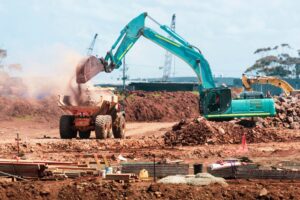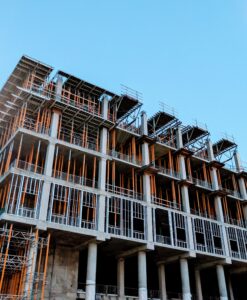How Accurate Weather Forecasting Can Help Construction Companies Avoid Costly Delays
Accurate weather forecasting is an invaluable tool for construction companies, as it can help them avoid costly delays. Construction projects are often subject to delays due to inclement weather, and these delays can be extremely costly. By utilizing accurate weather forecasting, construction companies can plan ahead and take the necessary precautions to ensure that their projects remain on schedule.
Accurate weather forecasting can help construction companies plan ahead for any potential delays. By monitoring the weather forecast, they can anticipate any potential delays and take the necessary steps to minimize them. For example, if a forecast predicts heavy rain, the construction company can plan to move the project indoors or delay certain tasks until the rain passes. This can help them avoid costly delays and keep the project on track.
Accurate weather forecasting can also help construction companies plan for any necessary safety precautions. Inclement weather can create hazardous conditions on a construction site, and it is important for construction companies to take the necessary steps to ensure the safety of their workers. By monitoring the weather forecast, they can anticipate any potential hazards and take the necessary steps to protect their workers.
Finally, accurate weather forecasting can help construction companies plan for any necessary materials or equipment. Inclement weather can cause delays in the delivery of materials or equipment, and this can lead to costly delays. By monitoring the weather forecast, construction companies can anticipate any potential delays and plan accordingly.
In conclusion, accurate weather forecasting is an invaluable tool for construction companies, as it can help them avoid costly delays. By monitoring the weather forecast, they can anticipate any potential delays and take the necessary steps to minimize them. This can help them keep their projects on track and ensure the safety of their workers.

The Benefits of Utilizing Real-Time Weather Tracking for Construction Projects
Real-time weather tracking is an invaluable tool for construction projects, as it can help to ensure that projects are completed on time and within budget. By monitoring weather conditions in real-time, construction teams can make informed decisions about when to start and stop work, as well as how to adjust their plans to account for any potential weather-related delays.
One of the primary benefits of real-time weather tracking is that it can help to reduce the risk of costly delays. By monitoring weather conditions in real-time, construction teams can be alerted to any potential delays before they occur. This allows them to adjust their plans accordingly, ensuring that the project is completed on time and within budget.
Real-time weather tracking can also help to reduce the risk of safety hazards. By monitoring weather conditions in real-time, construction teams can be alerted to any potential safety hazards before they occur. This allows them to take the necessary precautions to ensure that the project is completed safely and without any accidents or injuries.
Real-time weather tracking can also help to reduce the risk of damage to materials and equipment. By monitoring weather conditions in real-time, construction teams can be alerted to any potential damage before it occurs. This allows them to take the necessary precautions to ensure that materials and equipment are not damaged during the project.
Finally, real-time weather tracking can help to reduce the risk of environmental damage. By monitoring weather conditions in real-time, construction teams can be alerted to any potential environmental hazards before they occur. This allows them to take the necessary precautions to ensure that the project is completed without any environmental damage.
In conclusion, real-time weather tracking is an invaluable tool for construction projects. By monitoring weather conditions in real-time, construction teams can make informed decisions about when to start and stop work, as well as how to adjust their plans to account for any potential weather-related delays. This can help to reduce the risk of costly delays, safety hazards, damage to materials and equipment, and environmental damage.
 How Construction Companies Can Leverage Weather Data to Improve Safety and Efficiency
How Construction Companies Can Leverage Weather Data to Improve Safety and Efficiency
Construction companies can leverage weather data to improve safety and efficiency on the job site. Weather data can provide valuable information about the current and upcoming conditions, allowing companies to plan ahead and take the necessary precautions to ensure the safety of their workers and the success of their projects.
Weather data can be used to inform decisions about when to start and stop work, what safety measures to take, and what materials to use. For example, if a construction site is expecting high winds, the company can plan to delay work until the winds die down or take extra precautions to secure materials and equipment. If a site is expecting heavy rain, the company can plan to use waterproof materials or take extra steps to protect the site from flooding.
Weather data can also be used to inform decisions about the type of equipment to use. For example, if a site is expecting high temperatures, the company can plan to use lighter-weight equipment that won’t overheat. If a site is expecting cold temperatures, the company can plan to use equipment that is designed to operate in cold weather.
Weather data can also be used to inform decisions about the type of materials to use. For example, if a site is expecting high temperatures, the company can plan to use materials that are designed to withstand heat. If a site is expecting cold temperatures, the company can plan to use materials that are designed to withstand cold.
Finally, weather data can be used to inform decisions about the timing of projects. For example, if a site is expecting high temperatures, the company can plan to start work earlier in the day when temperatures are cooler. If a site is expecting cold temperatures, the company can plan to start work later in the day when temperatures are warmer.
By leveraging weather data, construction companies can improve safety and efficiency on the job site. By taking the necessary precautions and planning ahead, companies can ensure the safety of their workers and the success of their projects.




